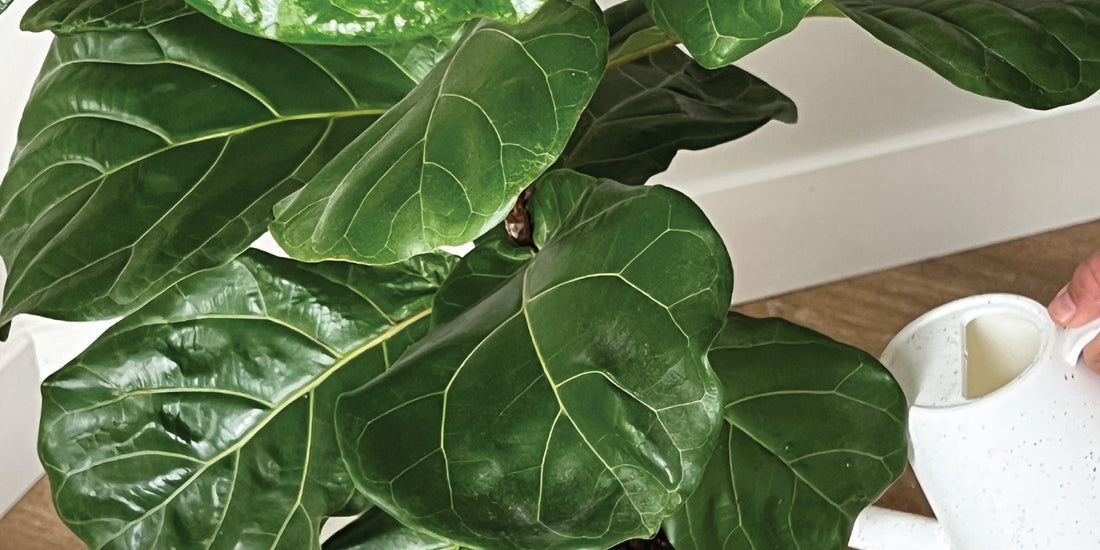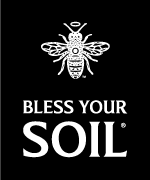
If you're a proud plant parent who loves growing plants in containers, then you know how rewarding it can be to see your leafy friends thrive. But have you ever wondered why container plants seem to have a voracious appetite for fertilizer?
Well, fear not, we are here to spill the dirt on why your potted plants need more fertilizer. So grab your gardening gloves and let's dig into the juicy details!
5 Reasons Why Your Container Houseplants Need Fertilizer More Often Than Outdoor Plants
Let's talk about the never-ending appetite of our container plants. You might think that your leafy darlings can fend for themselves with just soil, proper watering method, and light. But the truth is, they're not exactly Master Chefs in the kitchen. Take the fiddle-leaf fig tree, for instance - it's like a ravenous beast that devours all the nutrients in its soil faster than you can say "photosynthesis."
So, why are container plants such hangry little creatures that constantly demand more fertilizer? Well, it all comes down to their unique set of circumstances. Limited soil volume, constant leaching and runoff, growth spurts that rival a teenage growth spurt, roots getting all tangled up, and a lack of natural nutrient recycling - these are the factors that make our potted pals the ultimate foodies.
Don't worry, though - we'll break it all down for you so you can keep your container plants happily fed and thriving!
Why Potted Plants Hunger for More Fertilizer
-
Limited soil volume: Unlike plants in the ground that have access to a vast soil reservoir, container plants are confined to a limited amount of soil. As your plant grows and its roots spread, it quickly depletes the nutrients in the container, leaving it hungry for more [1].
-
Leaching and runoff: Watering container plants can cause nutrients to leach out of the potting soil and drain away, like a foodie running after the last slice of pizza. This nutrient loss is especially common in indoor or outdoor pots without drainage holes, where excess water cannot escape, resulting in nutrient runoff [2].
-
Faster growth rates: Container plants are often grown in controlled environments, where conditions are optimized for growth. It's like having your own personal plant gym with a protein shake on tap! This can lead to faster growth rates compared to plants in the ground, resulting in higher nutrient demands to fuel their speedy growth [3].
-
Root-bound plants: Just like your feet getting cramped in tight shoes, container plants can become root-bound when their roots outgrow the container. The roots get all tangled up and densely packed, reducing the availability of nutrients in the soil [4]. It's like a plant rave party that needs more snacks!
-
Absence of natural nutrient cycling: In the ground, natural processes such as decomposition of organic matter, microbial activity, and nutrient cycling help replenish soil nutrients. But container plants miss out on this natural party, as they are isolated from these processes. So they rely solely on you to provide them with the nutrients they need to thrive [5]. Talk about being a plant VIP!
So, what's the takeaway here? Container plants have unique nutrient requirements that call for regular fertilization to keep them happy and healthy. So make sure to give your potted pals the nutrient boost they need to flourish and show off their green glory!
Choosing the Right Fertilizer for Each Houseplant
If you're caring for a Fiddle-Leaf Fig tree plant or any Ficus variety, choose Fiddle Leaf Treats™ for their regular meal. It's a robust blend of ficus-food that will work magic on both soil quality and leaf creation.
Big Green Leaves™ (universal houseplant food) and Fiddle Leaf Treats™ (Ficus plant food) are formulated to help your houseplants thrive.
If you're a proud plant parent to a Monstera, Hoya, zz plant, pothos, snake plant, or any other houseplant, then Big Green Leaves™ is your secret weapon for keeping them thriving in their cozy container homes. With its unique formula, Big Green Leaves™ is specially designed to provide the essential nutrients your houseplants need to stay happy and healthy, no matter how small their living space may be. Say hello to lush, vibrant leaves and thriving plant babies
References:
- Marschner, P. (2012). Marschner's mineral nutrition of higher plants. Academic Press.
- Warner, G.M., & Edwards, D.R. (2000). Container media effects on nutrient availability and leaching in container-grown plants. Journal of Environmental Horticulture, 18(4), 180-185.
- Evans, M.R., & Poole, R.T. (2012). Containerized nursery production. In Container Gardening (pp. 25-37). Springer.
- Whitcomb, C.E. (2014). The use of slow-release fertilizers in container media for ornamental plants: A review. HortScience, 49(5), 554-559.
- Belayneh, B.E., & Wees, D.A.V. (2021). Effects of growing media components on physical properties of substrate and nutrient availability in greenhouse container production. HortTechnology, 31(3), 334-343.




